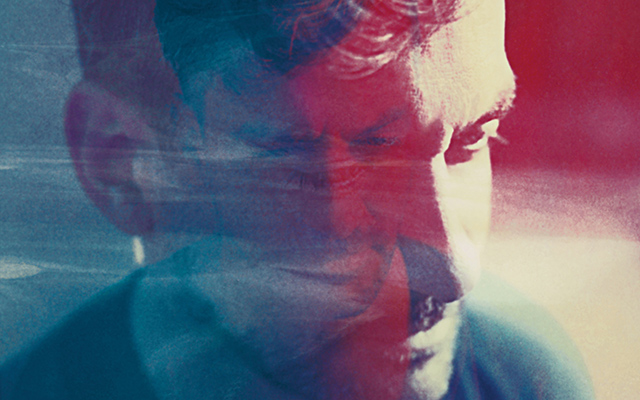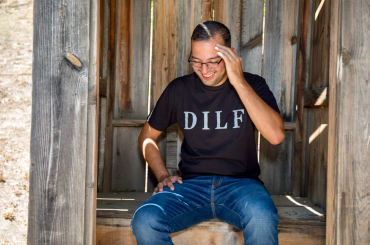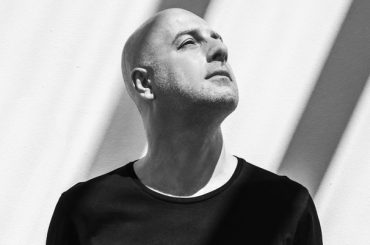At the very top of one of the highest hills in L.A.’s Echo Park neighborhood, Simon Green is tucked into his sparkling and expansive home.
The U.K. native professionally known as Bonobo relocated some two years ago, but has only been in town for half that time due to high demand for live performances of The North Borders, his acclaimed 2013 album. Full of gorgeous, ambient textures, but loaded with memorable tunes, like the oft-licensed “Cirrus,” the album continues to find fans. The solid touring schedule that resulted from its popularity could have, says Green, “gone on forever.”
Accordingly, much, if not all, of his latest Ninja Tune album, Migration, was started on the road. The extensive bus tour of North America, which included several DJ dates, was booked into traditional music theatres and featured a production rig for the live show. This ramped up into the first event for Green’s Outlier brand, a three-room party held this past March at London’s Tobacco Dock. The A-list line-up of DJs including Maya Jane Coles, Gilles Peterson, and George FitzGerald were all allowed a generous length of time for their sets. It’s something Green approaches as a given, with extended DJ sets at his bi-monthly residency at Brooklyn’s Output being a prime example.
“For those long sets where you’re playing over five hours, you have to trust the room,” says Green sitting in his tidy home studio, which feels like its in the country even though it’s a two-minute drive down the road to Echo Park’s many trendy establishments.
“You can’t do that just anywhere,” he continues. “By 2 or 3 a.m., you’re in the zone, which is almost spiritual. You can’t get to that energy if you haven’t already been doing it for three hours. It doesn’t just turn on. The people that show up at doors, they will be there at 5 a.m. I feel their attitude is, ‘If you’re going to do this, then I’m going to do this with you.’ That’s the real beauty. Those core of people, they’re your people.”
What Green brings with him for a DJ set hasn’t changed much over the years, category-wise. He has a revolving playlist of his favorite right-now tracks, as well as upcoming material. That’s peppered with a few specials and throwbacks, particularly to music that he hears today’s sounds referencing, as well as some classics, like New Order’s “Blue Monday” and Lil Louis’ “French Kiss”—two late-night bombs he dropped recently at Output. His selections incorporate some of his original material, but that’s not the objective, either for Green or for his fans in-the-know.
By that same token, Green didn’t concern himself with filling Migration with dazzling feature after dazzling feature. He has a few—Nick Murphy (aka Chet Faker), Rhye, Hundred Waters—but that’s not what Migration is about.
“There are so many albums that are compilations of vocalists, it’s like they are a competition of who can get the biggest feature,” says Green. “This is supposed to be my album. When features happen, they happen at the right time and for the right reason. There is a lot of vocal texture: samples and flipped things where it’s not necessarily about the narrative. It’s all about balance.“
Migration floats on a bed of quiet ambiance which leaves plenty of space for a variety of styles, from the Middle Eastern elements on “Ontario” to the breakbeats of “Outlier.” These recall Green’s prior albums, with characteristics of each turning up at intervals on Migration. While the album was started on a laptop running Ableton Live on the road, even when Green is at his nicely kitted-out home studio with its generous supply of beautifully maintained vintage outboard synthesizers plus a plethora of other toys, Ableton is still at the center of its sounds.
“People think what they see onstage is how the record is made,” says Green. “I use the [Sequential Circuits] Prophet-5 and [Roland] Jupiter-8 all the time for writing, and some pedals and noisemakers find their way in. The acoustic sounds on the album are recorded, whether it’s a sample or I make something myself, at some point everything has travelled through air and into a microphone. But the amount of time I actually have my hands on the synth, or any instrument, compared to how much of it is programmed, sound design, mixing, or mouse work, that ratio is massive. You spend a fraction of time playing an instrument. Most of it is just laptop and speakers.”
Migration is almost a solo listening album, highlighted by introspective songs full of soundscapes like “Second Sun” or moody tones like “Figures,” and even nudging, pretty bubblers like “Kerala.” This is a move away from the accessible, song-oriented essence of The North Borders, inarguably Green’s most successful album. That didn’t figure into his approach for Migration—rather, he didn’t worry about what anyone thought.
“It’s gotten to a point where I don’t have that need for validation,” he says. “I’m at a point in my life where I’m happy. Because I didn’t care what people thought, being in that mind space, that’s where the music really flourished.”








